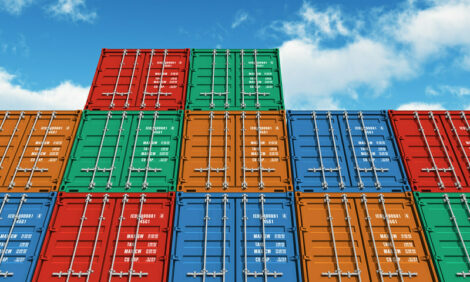



Positive Development Trends In Russian Production
RUSSIA - DLG offers an update on the latest developments in Russian animal production in the run-up to AgroFarm 2010. New investments are planned and international technology is much in demand, says DLG. The show will take place in Moscow on 26 to 28 May 2010.In spite of the economic crisis, Russia's animal production sector is showing signs of positive development. This was the tenor of a workshop organised by DLG (Deutsche Landwirtschafts-Gesellschaft; German Agricultural Society) in the run-up to AgroFarm 2010, a trade exhibition scheduled to be held in Moscow in May 2010. Together with a range of international experts from the fields of agriculture, industry and politics, DLG informed companies and organisations from the animal husbandry sector about the situation on the Russian market and talked about the significance of international cooperation as well as the political and legal framework conditions surrounding the development of Russian livestock production.
Dr Olga Hunger, who is in charge of CIS Cooperation at DLG, said: "Producer prices have improved in Russia since November." The price for raw milk is currently at 10 to 15 per cent above the standard, seasonal price increase. Furthermore, next year's lowering of meat import quotas will also generate more favourable framework conditions for livestock producers. As Dr Hunger pointed out, "Rising consumer demand, the impact of various state promotion and regulatory mechanisms as well as the ongoing need for agricultural modernisation all indicate an ongoing demand for the latest livestock production technology." Animal producers are therefore set to expand and further intensify their production capacity.
Evgeny Tikhov, Deputy Director of the large Russian pork producing company, Agrofirma Mortadel, underscored the outstanding role international technology has to play in the further development of animal production in Russia. He said: "Modern technology, along with high-performance genetics and efficient feed are essential for Russian pig producers if they want to operate profitably and competitively." The state is backing investments in this sector with subsidies. And pig stocks at Agrofirma Mortadel are scheduled to increase from the present 46,000 animals to up to 260,000 animals in the years ahead. To enable this growth to take place, some 20 new piggeries are to be constructed in the near future.
Mr Tikhov added: "We are relying here on production technology and genetics from Canada as well as on quality products from other international providers." What is more, Agrofirm Mortadel plans to build its own slaughterhouse and biogas plant.
Gerlinde Sauer, Manager of the Agricultural Working Group with the Committee, explained: "In 2009, foreign producers found it more difficult to access the Russian market. This was due in part to the global economic crisis. However, on the positive side, political willingness to promote investments in the agricultural and food industry is still there and cheap prices for land make it easier for investors to back agricultural products. The Committee on Eastern European Economic Relations is promoting trade and investment in the agriculture and food industry. The main thing is to keep up the dialogue and, using sound arguments, to emphasise the advantages of modern technology for Russian livestock production."
AgroFarm 2010 in Moscow
AgroFarm, which has evolved into the most important international exhibition for the livestock sector in Russia, offers an excellent opportunity for establishing a foothold on the Russian market. More than 160 exhibitors from 14 countries are using the exhibition this year to stabilise trade relations with Russia's animal husbandry sector and to make new ones. More than 8,000 professionals visited the event to find out more about modern breeding genetics, stall construction systems and the latest production techniques for cattle, pig, poultry, goat and sheep, as well as for aquaculture. The next AgroFarm is scheduled to take place from at the All-Russian Exhibition Centre in Moscow from 26 to 28 May 2010. Organisers are the Agricultural Sector of AREC (Moscow) and DLG Agriservice, a subsidiary of the German Agricultural Society (DLG).
Further information and application forms for AgroFarm 2010 can be obtained from DLG-Agriservice GmbH, Eschborner Landstr. 122, 60489 Frankfurt am Main, Germany; e-mail [email protected]; Dr Olga Hunger (Project Manager), Tel. +49 (0) 69/24788-271 and Ghennadiy Mindru (Exhibitor Services), Tel. +49 (0)69/24788-278. Detailed information and application documentation can also be downloaded by clicking here.
TheCattleSite News Desk


